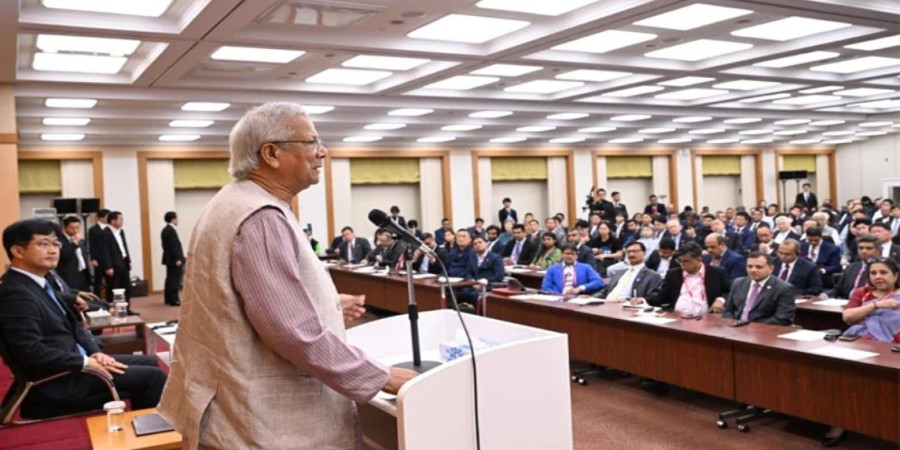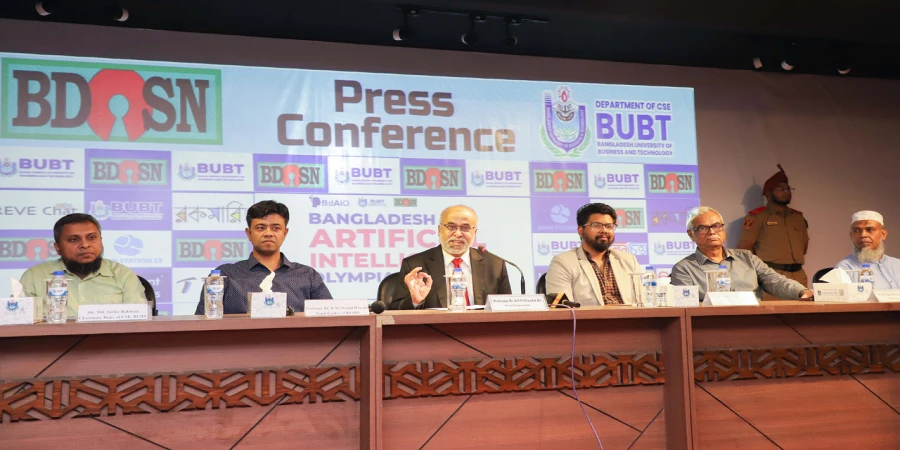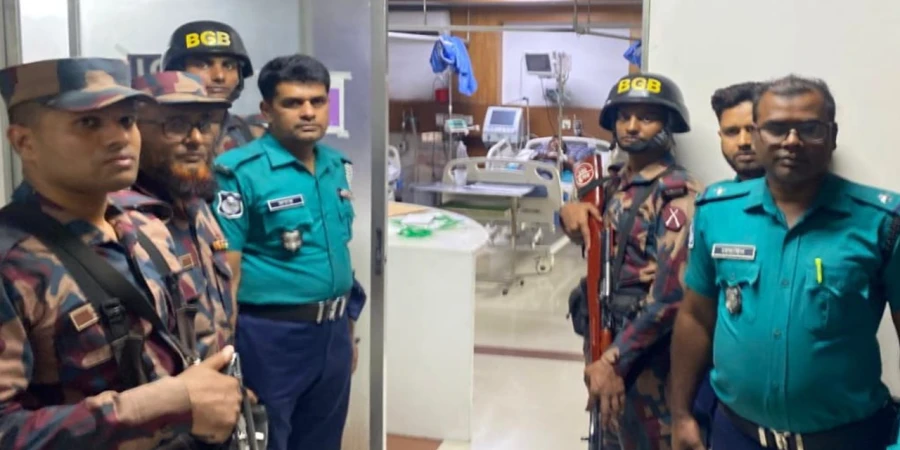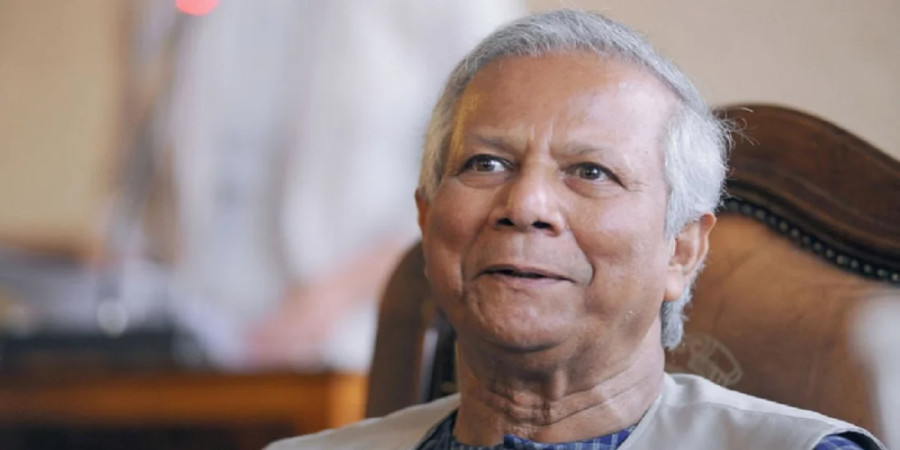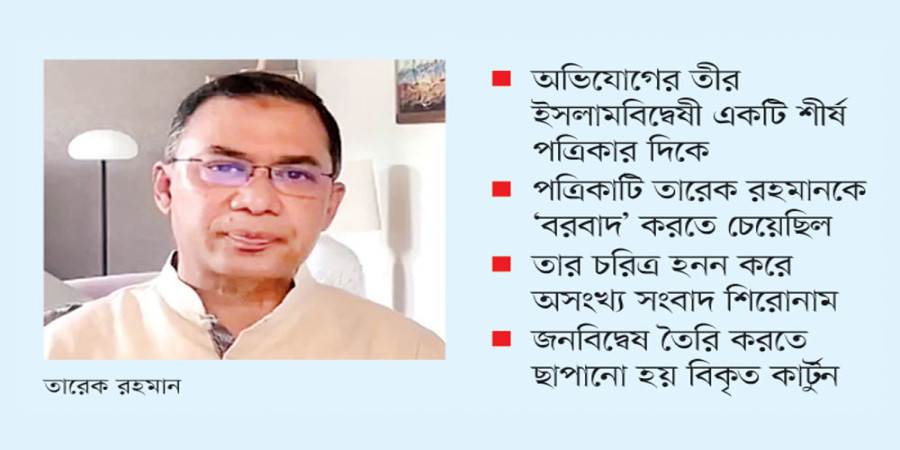
ছবি: Photo: Collected
The political landscape in Bangladesh is abuzz with accusations against a leading daily newspaper for allegedly reviving a "minus-two formula" targeting both BNP Chairperson Khaleda Zia and her son, acting chairman Tarique Rahman. Critics claim that the publication has been systematically working to tarnish Tarique’s political reputation since the 2007 military-backed caretaker government era, employing a variety of tactics including negative reports, caricatures, and insinuations of corruption, terrorism, and malfeasance.
Tarique Rahman, son of former President Ziaur Rahman and former Prime Minister Khaleda Zia, has lived in exile for years, citing political persecution. Observers allege that the newspaper in question played a critical role in fostering a narrative that framed Tarique as a “villain” in Bangladeshi politics. Reports linking him to terrorism, corruption, and financial misconduct were repeatedly published, fueling public distrust and casting a shadow over his political aspirations.
According to critics, the campaign against Tarique began in earnest during the 1/11 political crisis, when the caretaker government sought to eliminate Khaleda Zia and Sheikh Hasina from the political arena. The newspaper’s editorials, columns, and news coverage purportedly supported this agenda, portraying Tarique as the face of corruption and mismanagement in the BNP-led government.
Among the numerous allegations, the publication accused Tarique of being complicit in financial misdeeds alongside his close associate Giasuddin Al Mamun, with claims that they amassed illicit wealth through various means. Articles frequently depicted Tarique as a beneficiary of corruption, even suggesting that his activities had tacit approval from his mother, Khaleda Zia. The newspaper also linked him to the 2004 grenade attack on an Awami League rally, a narrative widely circulated in subsequent years despite recent court verdicts acquitting Tarique of involvement.
The controversial reporting extended to Tarique's younger brother, Arafat Rahman Koko, who was also portrayed as a figure of financial scandal. The newspaper published a series of articles alleging Koko’s involvement in money laundering and corruption, often accompanied by satirical illustrations designed to ridicule his character. These depictions, critics argue, were part of a broader strategy to undermine the Zia family’s political legacy.
In one notable editorial, the newspaper’s editor wrote that Tarique's activities had caused irreparable harm to the nation, asserting that no government could afford to forgive him. The paper went as far as conducting opinion polls and publishing public comments supporting the idea of Tarique retiring from politics, further cementing the narrative of his alleged unfitness for leadership.
During the 1/11 period, the daily also championed the idea of a “third political force,” aiming to displace both the Awami League and the BNP from the political scene. Although this initiative failed, critics argue that the publication has continued to work towards sidelining Tarique and other BNP leaders, allegedly in alignment with certain factions within the ruling establishment.
The fallout from this campaign has sparked widespread discontent among BNP supporters and neutral political observers alike. Many question the ethical implications of a media outlet actively shaping political narratives to the detriment of a single individual or party. They argue that the continuous publication of unverified or exaggerated claims damages the integrity of journalism and undermines public trust in democratic processes.
Tarique Rahman’s acquittal in several high-profile cases has added fuel to these criticisms, with BNP activists demanding accountability from the newspaper for what they see as years of biased reporting. They point out that much of the evidence cited in earlier articles has since been discredited in court, further eroding the credibility of the accusations against him.
The controversy has also reignited debates about press freedom and its limits in Bangladesh. While the media is seen as a cornerstone of democracy, its role in perpetuating political agendas and targeting individuals raises important questions about accountability and ethical standards.
As Tarique Rahman continues to live in exile, his supporters claim that such campaigns are designed to delay his return and disrupt his role in Bangladesh's political future. For them, the allegations against the prominent newspaper represent not just an attack on one leader but an attempt to manipulate the country’s political landscape.
Observers believe that the resurgence of these tactics indicates an ongoing effort to stifle dissent and consolidate power. Whether Tarique can overcome these obstacles and reclaim a place in Bangladesh’s political arena remains to be seen, but the enduring legacy of these allegations continues to shape public discourse and influence perceptions.
repoter



